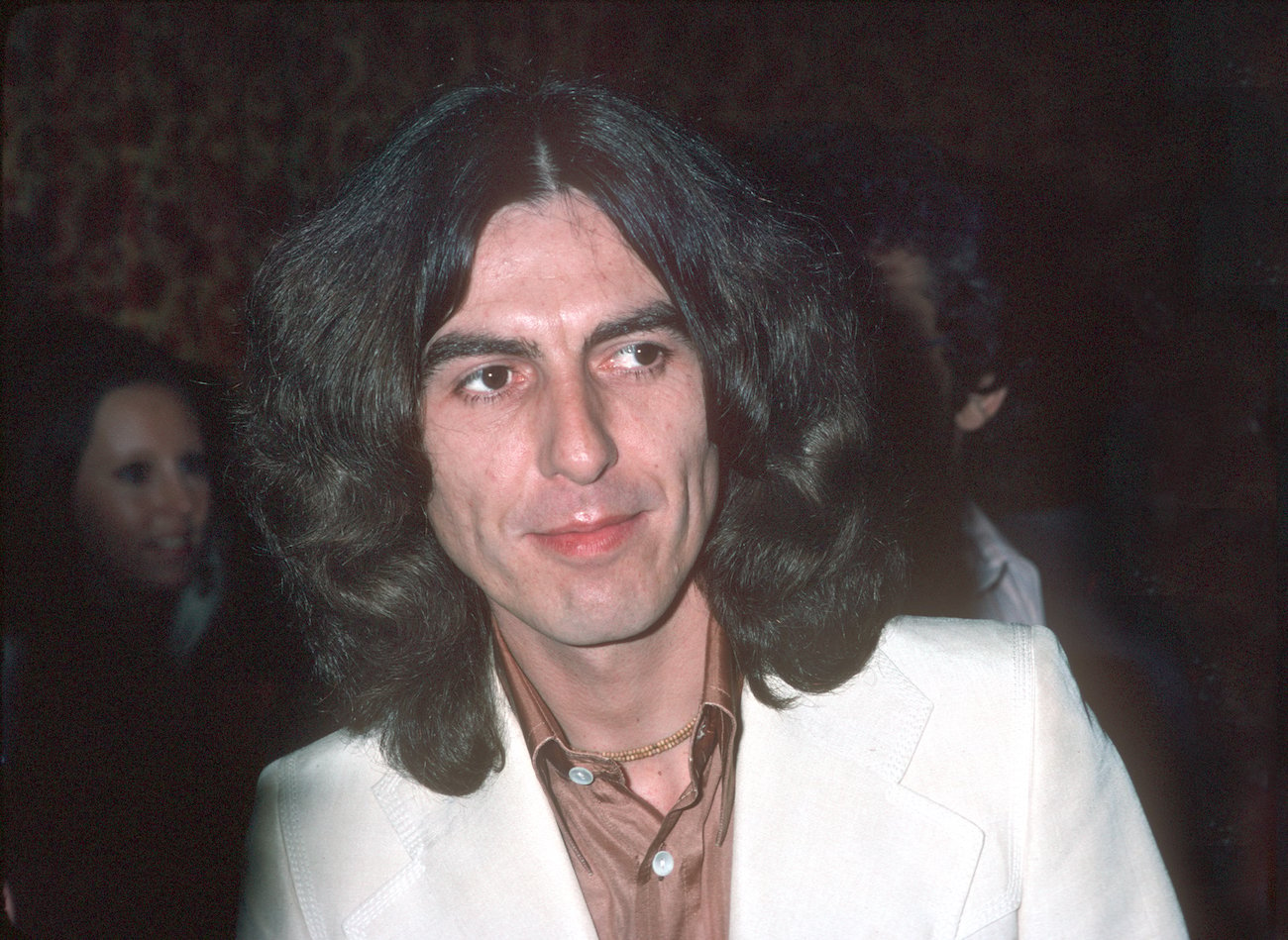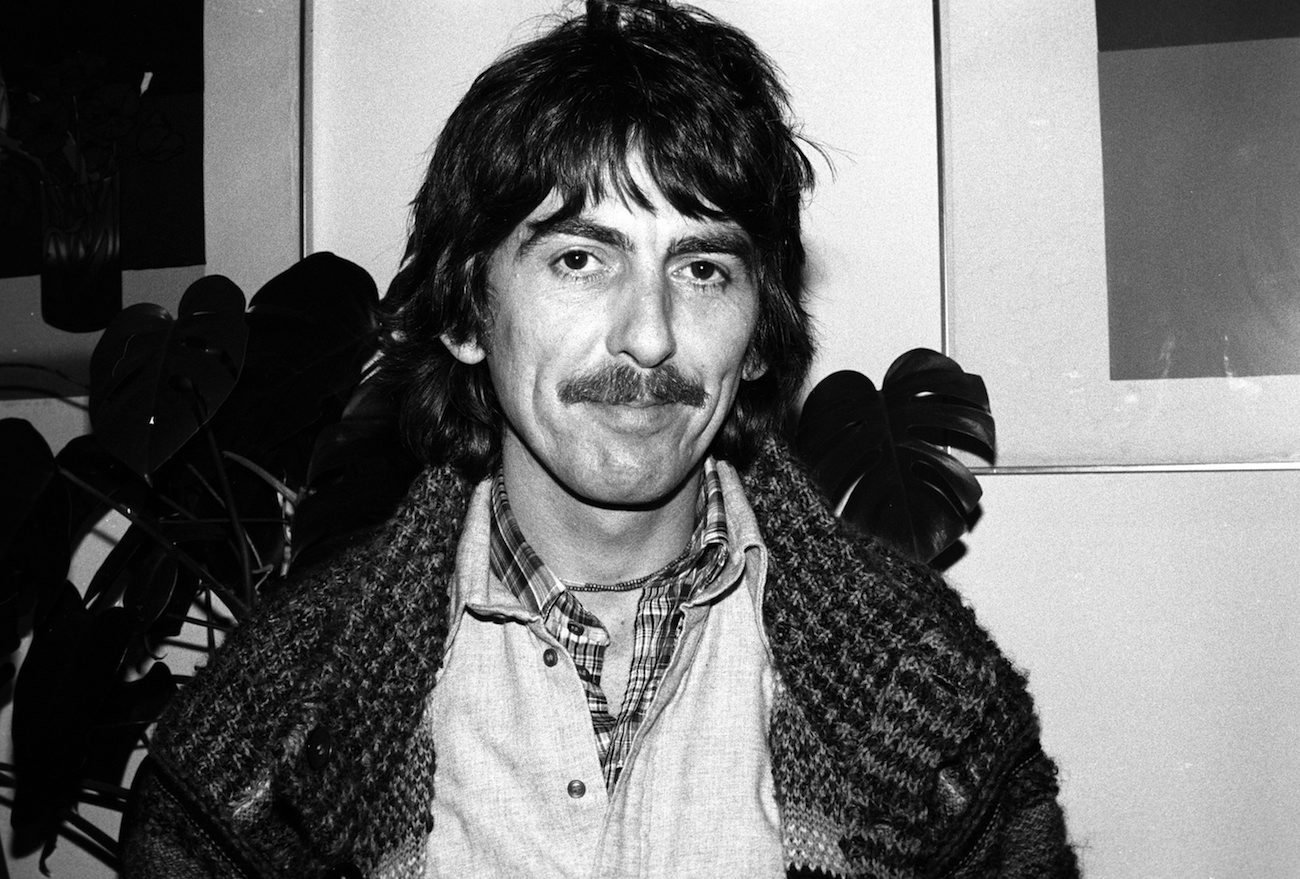
George Harrison Said He Gardened Through the Punk Movement: ‘I Just Kept My Head Down’
George Harrison said he kept his head down and gardener throughout the punk movement in the late 1970s. The former Beatle didn’t see a point in the new genre and all its destruction. He preferred positive music.

George Harrison said he kept his head down and gardened throughout the punk movement
During a 1987 interview with Anthony DeCurtis (per George Harrison on George Harrison: Interviews and Encounters), George explained what he thought about the punk movement. He said he kept his head down and gardened through most of it.
“I’m sure some of the punks did have the attitude that everything that went before was just a lot of rubbish,” George said. “The punk thing I was completely out of it; I was just gardening through that period. I just kept my head down, and I’d just see what was going on a bit, but it didn’t exactly impress me either musically or as a way of expressing yourself.”
George didn’t think the punk period was that constructive.
George didn’t think punk was ‘inventing anything except negativity’
During his time with The Beatles, George tried to spread love and spirituality. He wrote songs like “Within You Without You” and “Here Comes The Sun.” When things happened in the world that the band was against, they wrote constructive, thought-provoking songs like George’s “Piggies.”
When Ravi Shankar came to George in 1971 with a humanitarian crisis in Bangladesh, George sprang into action and organized the Concert for Bangladesh. During the Vietnam War, George’s fellow Beatle, John Lennon, wrote songs like “Give Peace A Chance.”
Almost 10 years after The Beatles split up, the punk revolution started. They sang about everything wrong in England at the time. However, George didn’t think punk was producing anything helpful.
He told DeCurtis, “You’re not going to get much joy ever, if you just go around kicking people in the teeth or spitting on them. There’s a much more subtle way of getting things to your own liking, you know, if that’s what they were about: to try and change the situation.
“But I suppose that’s a lot to do with the unemployment and that stuff … again, because of that period with unemployment and oil. I think the oil business has a lot to answer to, you know, the way it affected everybody’s lives around the world. It was in the ’70s wasn’t it, when it started happening.”
In 1979, George told Rolling Stone, “I don’t think punk was inventing anything except negativity. The old rock & roll singers sang fantastically, they had great drummers, great sax players. As far as musicianship goes, the punk bands were just rubbish – no finesse in the drumming, just a lot of noise and nothing.”
The former Beatle felt awful when the Sex Pistols said they had no future
Despite disagreeing with how the punk revolution went about provoking change in the country, George felt terrible for them. The Sex Pistols wrote a song called “No Future” because they felt they had none. The song later became “God Save The Queen.”
George added, “Well, I felt very sorry when the Sex Pistols were on television and one of them was saying, ‘We’re educated to go into the factories and work on assembly lines . . . ‘ and that’s their future. It is awful, and it’s especially awful that it should come out of England, because England is continually going through depression; it’s a very negative country.
“Everybody wants everything and nobody wants to do anything for it. But it’s a very simple thing; how do you give people money if there is none? The only way you make more money is to work harder. Now that may be all right for me to say because I don’t have to work in a factory, but it’s true.
“But out of all that is born the punk thing, so it’s understandable. But you don’t fight negativity with negativity. You have to overpower hatred with love, not more hatred.”
George was just as critical of the hippies he met at Haight-Ashbury. None of them were working, and he couldn’t stand the hypocrisy.
It’s interesting to think what would’ve happened if the punks listened to George’s advice or, at the very least, sang more positive songs. However, their anger lasted in people’s minds.


